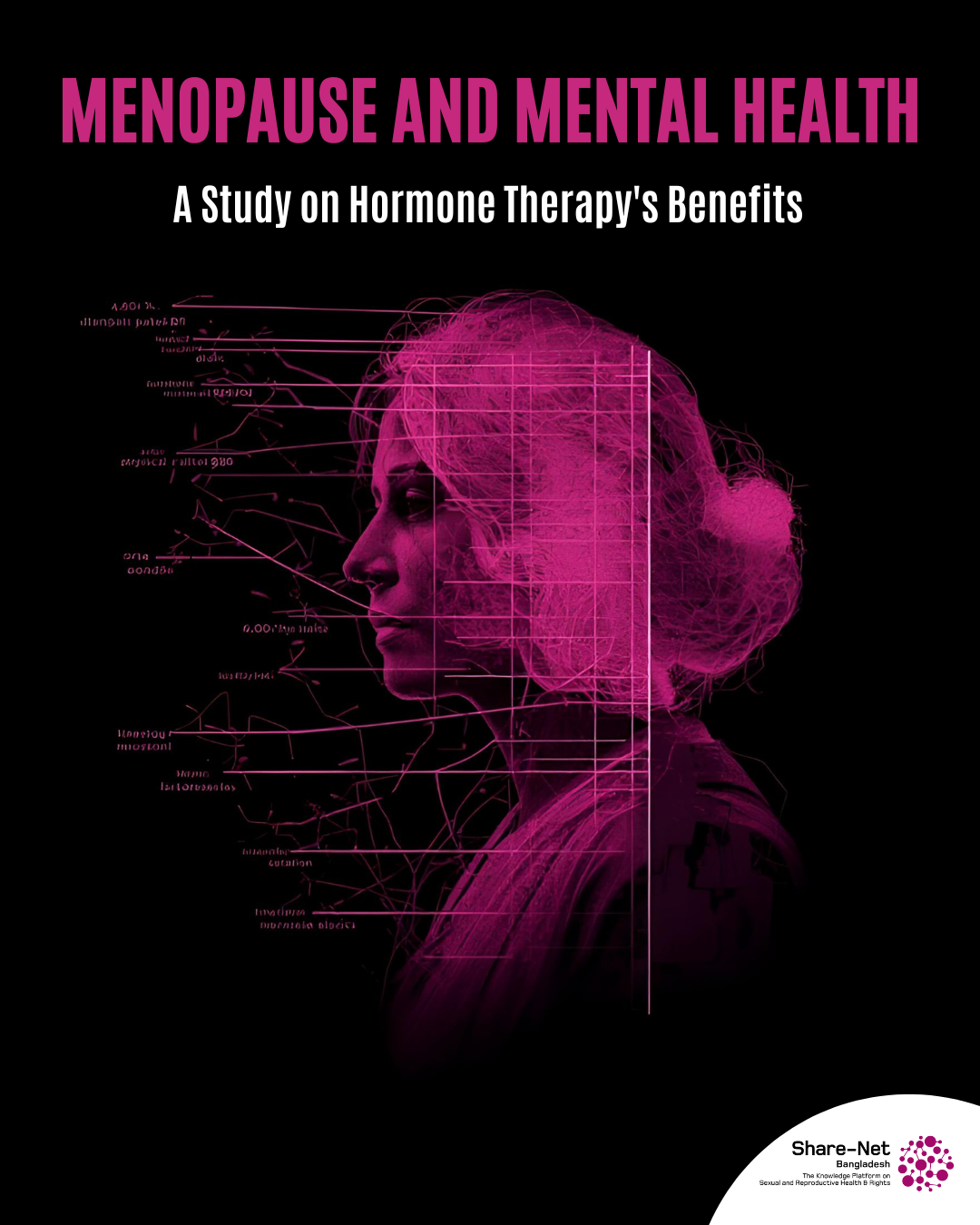Menopause and Mental Health: A Study on Hormone Therapy’s Benefits
Menopause, or Rojonibritti in Bengali, is a universal biological transition in a woman’s life marked by the cessation of monthly menstruation. Despite its global inevitability, the topic remains largely absent from public discourse in Bangladesh. This silence often leaves women unprepared, leading them to silently cope with the profound physical and psychological changes that, if left unmanaged, can escalate into significant health risks.
The Silence and Lack of Preparedness. The cultural hesitancy surrounding menopause is evident in daily life. A 45-year-old Dhaka homemaker, when asked about menopause, expressed clear discomfort and minimal knowledge, stating, “No, I haven’t taken any preparation, nor do I really know much about it.” Her understanding was limited to the cessation of periods and some physical discomfort, gained primarily through smaller, private conversations with older female relatives.
Globally, a woman spends approximately one-third of her life in the menopausal transition, as highlighted by the British Medical Bulletin (published by Oxford University Press). The initial symptom, often hot flashes, is frequently dismissed.
One 55-year-old woman shared her experience: “Sometimes I would suddenly feel intensely hot, like my body was burning. I’d wonder why I was so hot. I also became irritable. I didn’t understand it, so I initially ignored it.” For this woman, the consequences were severe; delayed understanding of her symptoms led to exacerbated osteoporosis and a resulting spinal curvature. She noted the difficulty in seeking advice, saying, “My period stopped around age 50. All the women in my family are younger than I am. I couldn’t talk to anyone.”
The Urgent Mental Health Link. Beyond physical ailments, the hormonal shifts during perimenopause and menopause can severely impact mental health, a factor rarely discussed. A recent UK-based study titled “The mental health challenges, especially suicidality, experienced by women during perimenopause and menopause: A qualitative study,” revealed alarming findings.
The study of 42 women found participants reported significant mental distress, including feelings of hopelessness, loneliness, and, disturbingly, varying degrees of suicidality, from passive thoughts to actual attempts. A critical issue noted was the misdiagnosis; many were incorrectly prescribed antidepressants for hormone-driven symptoms, which often worsened their condition.
This high mental health burden is mirrored in local data. A Dhaka-centric study titled, “The prevalence and associated factors of depression during pre-, peri-, and post-menopausal period among the middle-aged women of Dhaka city,” found that approximately 30.4% of the 326 middle-aged women surveyed experienced Major Depression during the menopausal transition.
HRT as the Solution: The UK study brought crucial hope, as women who received timely and appropriate Hormone Replacement Therapy (HRT) reported significant improvements in their mental well-being. HRT, administered as tablets, gels, or patches containing estrogen (and often progestogen for women with a uterus), effectively manages menopausal symptoms and substantially improves quality of life.
Researchers emphasise the need for improved training for healthcare providers, rapid HRT access, and integrated care to address these severe mental health challenges. Prioritising menopausal mental health is essential and can be life-saving.
Source: Menopause: Nativity, Sexuality, Emotion, Physical Complications, Questions about the Impact of Rojonibritti, BBC Bangla (Adapted and fact-checked with cited research studies).

